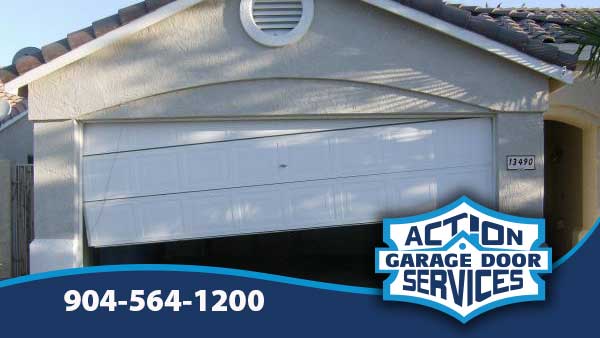Preventing Garage Door Breakdowns: A Local Owner's Tips
As a long-time Jacksonville resident and local garage door expert, I’ve seen just about every garage door issue you can imagine. From noisy rollers to doors stuck halfway, breakdowns can be a major inconvenience. But with a little maintenance and know how, many of these issues can be avoided. In this blog, I’ll share my top tips for preventing garage door breakdowns, so you can keep your garage functioning smoothly year-round.
Regular Inspection is Key
One of the simplest ways to avoid major garage door repairs is through regular inspections. Catching a problem early can make the difference between a quick fix and a costly breakdown.
Check for Wear and Tear
Make it a habit to check for any visible signs of damage. This includes:
- Frayed cables
- Rust on springs and rollers
- Misalignment of tracks
- Loose or missing bolts and screws
By visually inspecting these components, you can often spot early signs of trouble. If you notice anything off, it might be time to schedule a garage repair with a professional.
Test the Balance of Your Door
An unbalanced garage door puts extra strain on the opener and can lead to premature failure. Here’s how to test the balance:
- Disconnect the garage door opener and manually lift the door halfway.
- If the door stays in place, it’s balanced. If it moves up or down, it may be time to adjust the springs or hire a pro.
Balancing a garage door can be tricky and potentially dangerous, so it’s best left to the experts if you’re not comfortable handling it yourself.
Lubrication: The Secret to a Smooth Door
A well-lubricated garage door operates smoothly and quietly, reducing friction and the chance of parts wearing out prematurely. Here’s how to keep things running smoothly:
Lubricate Moving Parts
All the moving parts of your garage door, including rollers, hinges, tracks, and springs, need regular lubrication. Use a high-quality, garage-specific lubricant—skip the WD-40, as it can actually attract dirt.
- Springs: Apply lubricant to the entire length of the springs to reduce tension and prevent rust.
- Rollers: Spray lubricant on the rollers (but not the nylon ones) to reduce noise and ensure smooth operation.
- Tracks: Keep the tracks clean and lubricated, but don’t overdo it—a small amount will do the trick.
Opener Chain/Belt Lubrication
Don’t forget your garage door opener! If you have a chain-drive opener, apply grease to the chain at least once a year. Belt-drive openers need less maintenance but should still be checked occasionally to ensure smooth operation.
Keep the Tracks Clean
Dirty or misaligned tracks are a common cause of garage door breakdowns. Even small debris like leaves or dirt can cause the door to misalign, making it harder for the door to open and close smoothly.
Clean the Tracks Regularly
Use a damp cloth to wipe down the tracks on both sides. If there’s built-up grime, use a mild detergent to break it down. Just make sure to wipe the tracks dry afterward to prevent rust from forming.
Align the Tracks if Necessary
If your garage door is sticking or making grinding noises, the tracks may be misaligned. In some cases, a simple adjustment of the bolts holding the tracks in place can solve the issue. However, significant alignment issues are better handled by a professional garage repair technician to avoid damage.
Don’t Forget the Weatherstripping
Weatherstripping is another component that often gets overlooked but plays an essential role in keeping out debris and maintaining a proper seal for energy efficiency.
Inspect for Cracks or Gaps
Check the weatherstripping at the bottom of your garage door. If you notice any cracks or gaps, it’s time to replace it. This not only helps with insulation but also keeps your garage door working smoothly by preventing dirt and moisture from getting into the moving parts.
Protect Your Garage Door Opener
Your garage door opener is the unsung hero of your garage door system, doing the heavy lifting every day. To extend its life, here are a couple of key maintenance tips:
Use Surge Protectors
Florida’s unpredictable weather, particularly during hurricane season, can wreak havoc on electronics. A power surge can damage the sensitive components in your garage door opener, so consider using a surge protector to shield it from electrical spikes.
Keep an Eye on the Sensors
Your garage door opener sensors are responsible for ensuring the door doesn’t close on objects, people, or pets. Periodically clean them and check for any obstructions or misalignment. If your door isn’t closing properly, it could be a sensor issue, and you’ll want to fix that quickly to avoid more serious problems.
Schedule Professional Maintenance
While DIY maintenance is essential, some tasks are better left to the pros. An annual tune-up from a certified technician can catch small issues before they become big, costly problems.
Benefits of Professional Garage Repair Services
A professional technician will not only lubricate and adjust components but also perform a thorough inspection of the entire system, including:
- Checking the cables and springs for wear
- Ensuring the opener operates correctly
- Tightening bolts and brackets
- Checking the safety systems
If you’re unsure of the condition of your garage door or it’s been a while since your last tune-up, it might be time to schedule a garage repair service to keep things running smoothly.
Conclusion:
By taking the time to perform regular maintenance and inspections, you can significantly extend the life of your garage door and avoid unexpected breakdowns. Simple steps like lubricating moving parts, keeping the tracks clean, and balancing the door can make all the difference. But if you do run into trouble, don’t hesitate to call in the experts for a professional garage repair. Remember, a little prevention goes a long way in ensuring your garage door stays in top shape for years to come.

